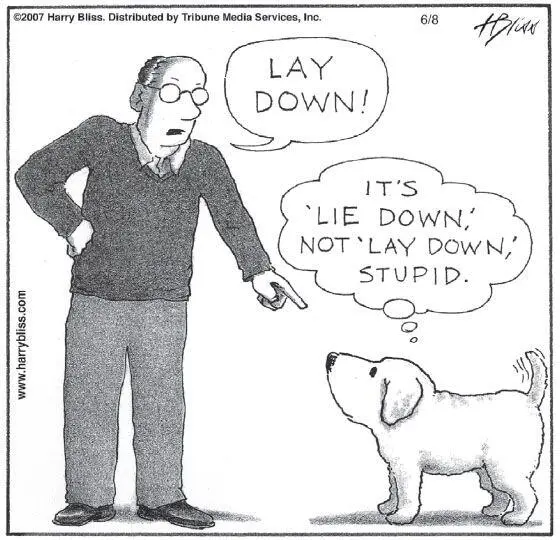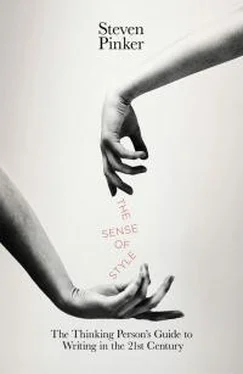refute
prove to be false (
She refuted the theory that the earth was flat
.)
allege to be false, try to refute (*
She refuted the theory that the earth was round.
)
Refute
is a factive or success verb, like
know
and
remember
, which presupposes the objective truth or falsity of the proposition. Many writers, including a slim majority of the Usage Panel, accept the non-factive “try to refute” sense, but the distinction is worth respecting.
reticent
shy, restrained (
My son is too reticent to ask a girl out
.)
reluctant (*
When rain threatens, fans are reticent to buy tickets to the ballgame
.)
The Usage Panel hates the “reluctant” sense.
shrunk, sprung, stunk, sunk
past participle (
Honey, I’ve shrunk the kids.
)
past tense (*
Honey, I shrunk the kids.
)
Admittedly,
Honey, I shrank the kids
might not have worked as the title of the Disney movie, and past-tense
shrunk
and similar forms are venerable and respectable. But it’s classier to distinguish pasts from participles (
sank–has sunk, sprang–has sprung, stank–has stunk
) and to avail oneself of other lovely irregular forms like
shone, slew, strode–has stridden, and strove–has striven.
simplistic
Naïvely or overly simple (
His proposal to end war by having children sing Kumbaya was simplistic.
)
simple, pleasingly simple (*
We bought Danish furniture because we liked its simplistic look
.)
Though not uncommon in art and design journalism, using
simplistic
for
simple
sets many readers’ teeth on edge, and can insult something it means to praise. See also
fulsome, opportunism.
staunch
loyal, sturdy (
a staunch supporter
)
stop a flow, stanch a flow (*
staunch the bleeding
)
Dictionaries say that both spellings are fine with both meanings, but it’s classier to keep them distinct.
tortuous
twisting (
a tortuous road, tortuous reasoning
)
torturous (*
Watching
Porky’s Part VII
was a tortuous experience
.)
Both come from the Latin word for “twist,” as in
torque
and
torsion
, because twisting limbs was a common form of torture.
unexceptionable
not worthy of objection (
No one protested her getting the prize, because she was an unexceptionable choice
.)
unexceptional, ordinary (*
They protested her getting the prize, because she was an unexceptionable actress
.)
Unexceptional
means “not an exception.”
Unexceptionable
means “no one is able to take exception to it.”
untenable
indefensible, unsustainable (
Flat-Earthism is an untenable theory; Caring for quadruplets while running IBM was an untenable situation.
)
painful, unbearable (*
an untenable tragedy; *untenable sadness
)
The hybrid sense “so unbearable as to be unsustainable” is accepted by the Usage Panel, as in Isabel Wilkerson’s “when life became untenable.”
urban legend
an intriguing and widely circulated but false story (
Alligators in the sewers is an urban legend
.)
someone who is legendary in a city (*
Fiorello LaGuardia became an urban legend
.)
See also
hot button, New Age, politically correct.
The
legend
pertains to the original sense “a myth passed down for generations,” not the journalistic sense “a celebrity.”
verbal
in linguistic form (
Verbal memories fade more quickly than visual ones.
)
oral, spoken (*
A verbal contract isn’t worth the paper it’s written on.
)
The “spoken” sense has been standard for centuries and is by no means incorrect (the famous Goldwynism wouldn’t work without it), but sometimes it is confusing.
The differences between two other families of similar-sounding words are so tortuous (and torturous) as to need a bit more explanation.
The words affect and effect come in both noun and verb versions. Though it’s easy to confuse them, it’s worth mastering the distinction, because the common errors in the third column will make you look like an amateur.
Word
Correct Use and Spelling
Incorrect Use and Spelling
an effect
an influence:
Strunk and White had a big effect on my writing styl
e.
*Strunk and White had a big affect on my writing style.
to effect
to put into effect, to implement:
I effected all the changes recommended by Strunk and White.
*I affected all the changes recommended by Strunk and White.
to affect
(first sense)
to influence:
Strunk and White affected my writing style.
*Strunk and White effected my writing style.
to affect
(second sense)
to fake:
He used big words to affect an air of sophistication.
*He used big words to effect an air of sophistication.
But the most twisted family of look-alike and mean-alike words in the English lexicon is the one with lie and lay. Here are the gruesome details:

The imbroglio arises from the fact that we have two distinct verbs fighting over the form lay: it’s the past tense of lie, and it’s the plain form of lay, whose meaning—just to torment you further—is “cause to lie.” It’s no wonder that English speakers commonly say lay down or I’m going to lay on the couch, collapsing the transitive and intransitive versions of lie . Or are they collapsing the past and present tenses of lie ? Both have same result:
*to lay
to recline (an intransitive regular verb)
*He lays on the couch all day.
*He laid on the couch all day.
*He has laid on the couch all day.
Don’t blame the usage on Bob Dylan’s “Lay, Lady, Lay” or Eric Clapton’s “Lay Down, Sally”; careful English writers have been using it since 1300, right up to William Safire’s “The dead hand of the present should not lay on the future” (no doubt triggering a flurry of mail for his UofAllPeople file). Intransitive lay is by no means incorrect, but to the ears of many, lie sounds better:

PUNCTUATION
The main job of punctuation is to eliminate the ambiguities and garden paths that would mislead a reader if print consisted only of vowels, consonants, and spaces. 58Punctuation restores some of the prosody (melody, pausing, and stress) that is missing from print, and it provides hints about the invisible syntactic tree that determines a sentence’s meaning. As the T-shirt observes, punctuation matters: Let’s eat, Grandma has a different meaning from Let’s eat Grandma.
Читать дальше














